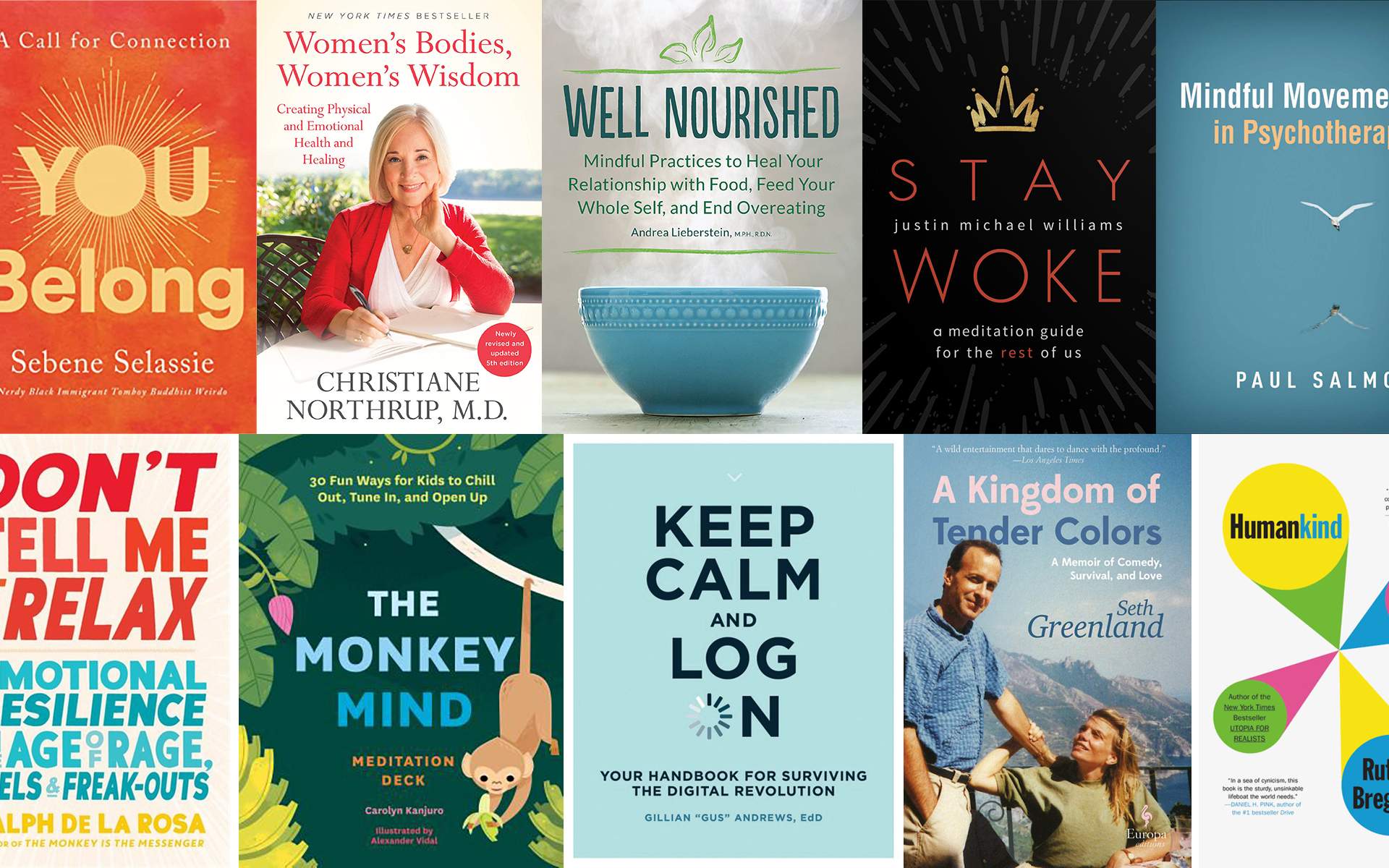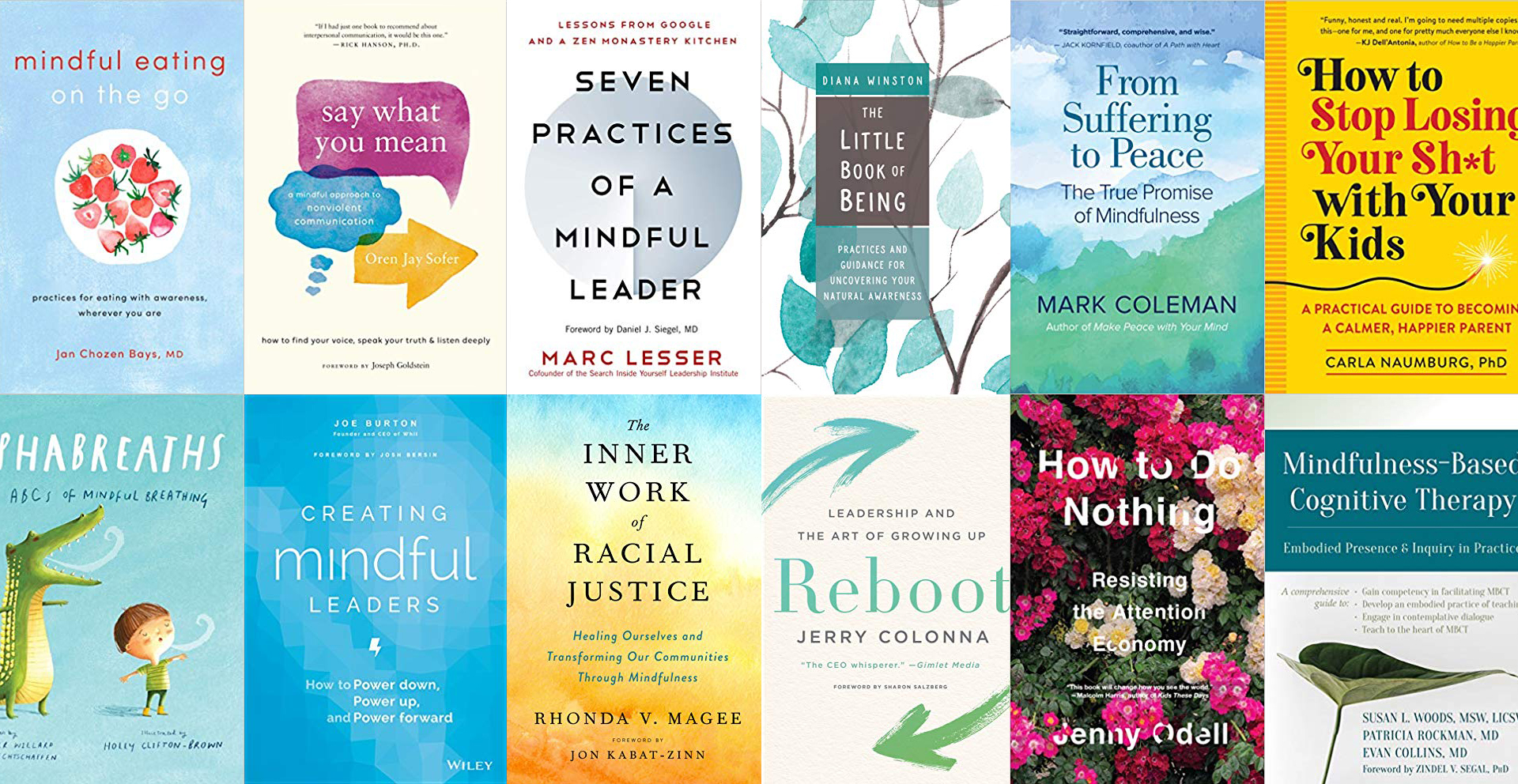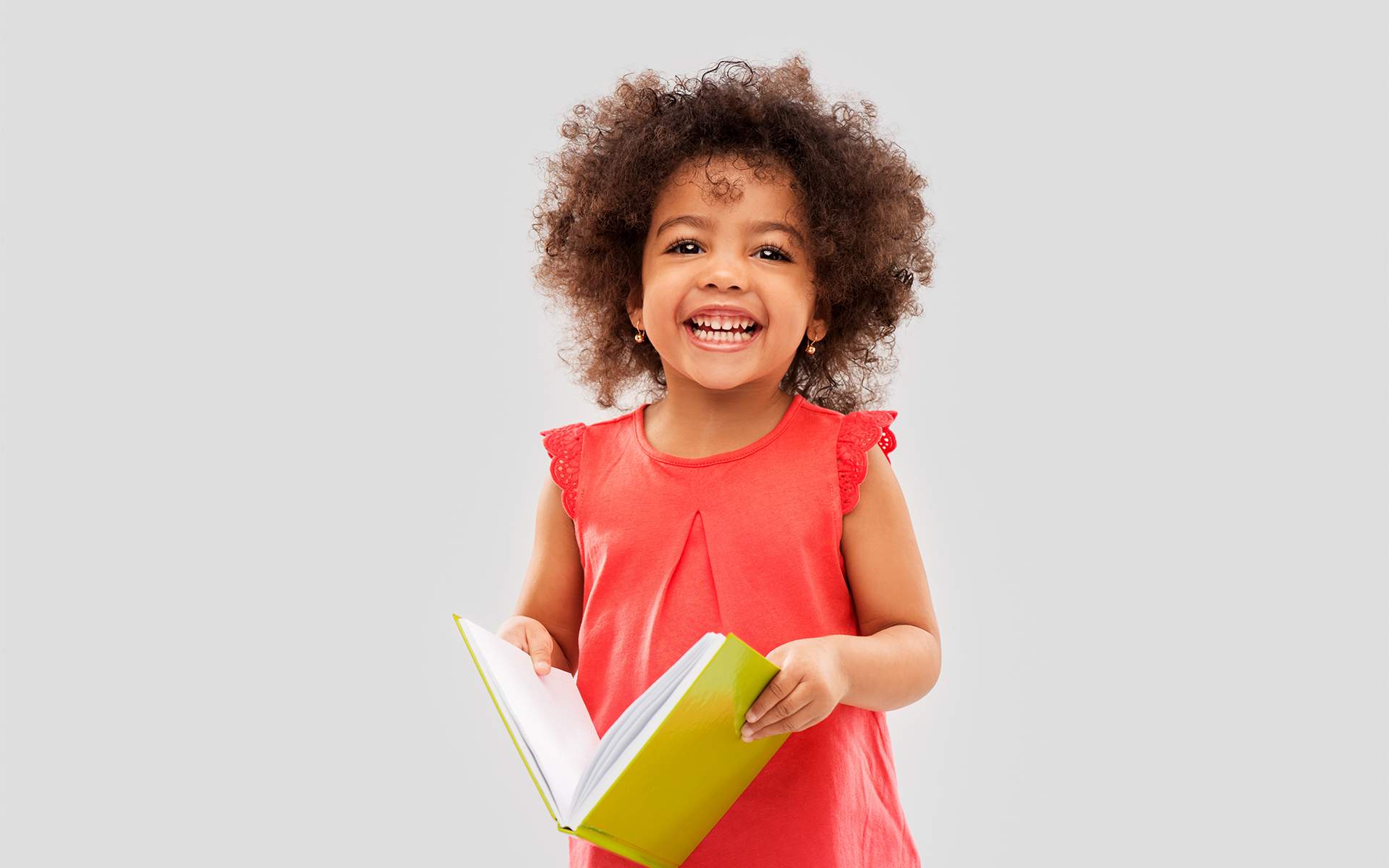Throughout this turbulent year, one of our enduring sources of hope and inspiration has been curling up with a good book. Fortunately, when the going got tough, these new titles were there to keep us going. From the books that expanded our knowledge about the brain and the body, to those that helped us ride the waves of emotion and reconnect with compassion, here are the Mindful editors’ favorites.
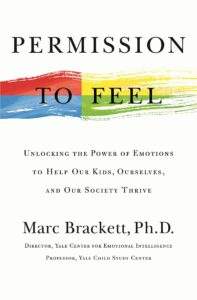
1. Permission to Feel
Unlocking the Power of Emotions to Help Our Kids, Ourselves, and Our Society Thrive
Marc Brackett • Celadon Books
Brackett—founding director of the Yale Center for Emotional Intelligence—came to this work with a mission born from his own experience of bullying and sexual assault, which he discusses poignantly in Permission to Feel. Before we learn his story, however, Brackett paints a vivid picture of why emotions matter so much for public health and education. Incidents of bullying and harassment in US K-12 schools doubled each year between 2015 and 2017; 46% of teachers report high daily stress; from 2016-2017, one in three students across 196 US colleges reported diagnosed mental health conditions; a quarter of US children between 13 and 18 suffer from anxiety disorders; and by 2030, mental health problems could cost the global economy up to $16 trillion. When our children learn unhealthy responses to emotion, tangible results ripple through families, schools, communities, and society. That’s the diagnosis.
Brackett’s prescription—as researched, taught, and advocated for at the Yale center—begins with a very simple question: How are you feeling? If the response is avoidance or lying, if no one is interested in our genuine answer, we’re almost certain to suffer, and that suffering will spread. Instead, Brackett recommends the RULER method: Recognizing emotions in oneself and others; Understanding the causes and consequences; Labeling emotions precisely; Expressing emotions, taking context and culture into consideration; and Regulating effectively. The book expands on this method and how it’s used for both adults and children. (In schools, RULER works with the adults before taking it to students.) Permission to Feel is an inspiring book with a timely message, not only for each of us, but for the organizations and institutions that model how we are supposed to carry ourselves. —BB
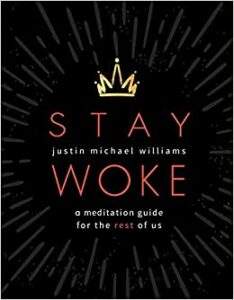
2. Stay Woke
A Meditation Guide for the Rest of Us
Justin Michael WIlliams • Sounds True
Many “spiritual” writings give only incidental mention of the social and material struggles people face. They imply, “Inequality, marginalization? That’s an out-there problem. Ignore it and meditate.” Having reckoned with homophobia, personal trauma, and stress rooted in poverty and domestic violence, Justin Michael Williams has no time for that: “You need a different type of meditation. One that doesn’t pretend the struggle doesn’t exist.” He demonstrates real strength through the honesty and vulnerability of his first book. With “Freedom Meditation,” he offers you 10 steps to create a meditation (and life) practice that’s about fearlessly embracing all of who you are, to explore both your inner and outer worlds: “Meditation is not about relaxing. Meditation is about becoming more alive.”—AT
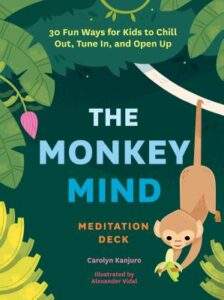
3. The Monkey Mind Meditation Deck
30 Fun Ways for Kids to Chill Out, Tune In, and Open Up
Carolyn Kanjuro • Shambhala
With exquisite illustrations by Alexander Vidal, this pack of 30 cards mixes many images: We find weather (rainbow, gentle breeze, hurricane), natural features (tree, mountain, rushing river), and anthropomorphized animals (cranky crab, burrowing bunny, loyal dog) on one side, and simple, playful meditation practices on the other side. The result is a stunning variety of short, insightful practices that can be, according to the accompanying guide, “a source of invention and play, a safe way to reflect on difficult topics, and a form of nourishment and support for children navigating an increasingly complex world.” The instructions are very clearly expressed, and (best of all) the teachings embodied here avoid the extreme earnestness that can ruin meditation for people of all ages. —BB
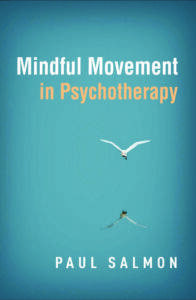
4. Mindful Movement in Psychotherapy
Paul Salmon • Guilford Press
How many movies or TV series have you seen depicting psychotherapy? Every time it’s the same scene. The therapist in a comfortable chair, their hands nested beneath their chin, listening intently or speaking wisely. Across from them sits the client on a chair or couch, usually a little more anxious. Salmon, a clinical psychologist teaching in the department of psychological and brain sciences at the University of Louisville, asks us: Is anything missing from this picture?
Movement. Because movement is, he says, traditionally “viewed as outside the realm of ‘talk therapy.’” Salmon—who is also a certified exercise physiologist, registered yoga teacher, personal trainer, and mindfulness teacher—encourages clinicians to consider incorporating “purposeful, mindful movement” in their interventions. He is not talking simply about exercise but about movement infused with awareness of what’s going on in body and mind, which can “provide a way to rekindle appreciation for our ability to move and be physically active.” Moving, he emphasizes, is baked into our DNA, but our lifestyles have greatly reduced it. Physical activity itself can create tangible experience that helps us be more than sedentary bodies with overactive brains, providing “an anchor to moment-to-moment reality.”
Salmon leads off by offering five progressively more engaged ways to bring movement into therapy. He then defines mindful movement and makes a case for it, as well as reviewing how mindful movement is used in existing clinical programs. From there,Salmon offers practical applications, first in a general way, and then for various kinds of conditions, such as anxiety, depression, PTSD, eating disorders, and addiction. There are also 29 audio guided practices that purchasers of the book can use personally or with clients. —BB
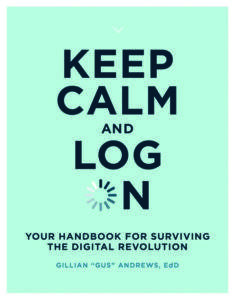
5. Keep Calm and Log On: Your Handbook for Surviving the Digital Revolution
Gillian “Gus” Andrews, EdD • The MIT Press
This handbook is crammed with practical information, from understanding bias to figuring out who owns a particular website. Andrews points out that the digital revolution—with its promise of connecting us all, extending access, and generally spreading more fun—often makes us feel more disconnected and proliferates disinformation. Her book is for those of us who feel “bad at” technology, addicted to it, or at a loss for how best to navigate a world dominated by it. She addresses FAQs around privacy, online etiquette, critical thinking, intimate online relationships, and more. Worksheets, practices, advice, and resources for further reading make this guide valuable for anyone who wants to better understand one of the defining revolutions of our time. —SD
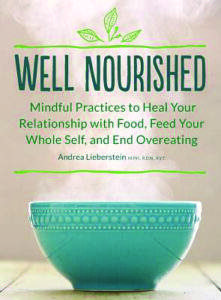
6. Well Nourished: Mindful Practices to Heal Your Relationship with Food, Feed Your Whole Self, and End Overeating
Andrea Lieberstein, MPH, RDN • Fair Winds
This step-wise approach to healing our relationships with food offers worksheets, charts, graphs, prompts, and practices to lead readers through an inventory of how, what, and why we eat and overeat. Lieberstein outlines what she calls our “eight bodies”: physical, emotional, psychological, spiritual, social, intellectual, and creative. A lack of nourishment of one or more of those bodies may lead us to overeat, Lieberstein writes. Subsequent chapters focus on each of those bodies—with research-based information about the importance of each to our well-being, along with tools for tapping into awareness, setting intentions, and making changes to better nourish each of our bodies. Well Nourished is a practical, compassionate, customizable approach to an issue that can feel insurmountable—we have to eat to survive, but failing to address our relationship with food and overeating can stunt our ability to thrive and live fully. —SD
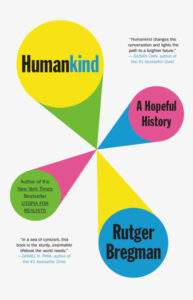
7. Humankind
A Hopeful History
Rutger Bregman • Little, Brown, and Company
In 1971, professor Philip Zimbardo carried out the notorious Stanford Prison Experiment, wherein “a group of ordinary students morphed into monsters,” in the words of Rutger Bregman. In a pivotal chapter in Humankind, Bregman lumps this experiment together with Stanley Milgram’s 1961 study where subjects applied what they were told were electric shocks to people who answered questions incorrectly, and a full 65% of the subjects continued applying shocks up to the limit they were told to apply. To this pair, he adds studies of the “bystander effect” that came out of the 1964 murder of Kitty Genovese in New York, which occurred while many appeared to look on and do nothing.
Bregman brings this research up—after an earlier chapter on William Golding’s Lord of the Flies—to show us what has been marshaled to lead to the conclusion that we are, as one columnist put it after the Genovese incident, “a callous, chickenhearted and immoral people,” or as Golding wrote, “Man produces evil as a bee produces honey.”
Bregman gradually widens each frame to reveal bigger pictures. The Milgram and Zimbardo experiments suffered from the same disease as reality TV: The producers and directors are outside the picture hectoring and egging the participants on. Psychological research can’t be done this way anymore, and Zimbardo himself atoned by launching the Heroic Imagination Project. In the Genovese case, there were people who did something, but they were overlooked in the zeal to tell a sensational story.
This gets to the heart of what Bregman is about: Because people have done bad things, including some very shockingly bad things (see the Holocaust), we revert to a simplistic story of basic badness. Then, we design things based on that belief, leading to outcomes like mass incarceration. He’s asking us to consider what would happen if we started from a belief in people’s fundamental decency, for which we also have a great deal of evidence. Would we build a better world? —BB
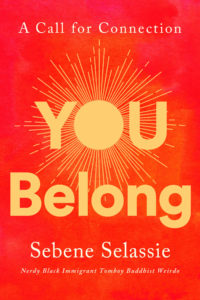
8. You Belong: A Call for Connection
Sebene Selassie • HarperCollins
This debut from meditation teacher Sebene Selassie is a pure delight. Selassie’s style tells the reader: You belong in these pages, and her message tells us: You belong, period. Selassie pulls from science, ancient Indigenous wisdom, Buddhism, art, pop culture, friends’ anecdotes, and her own experience (as an Ethiopian-Eritrean child of immigrants, regularly the only Black kid in any group, three-time survivor of cancer, longtime meditator, and life-long seeker of ways to belong) to build a convincing argument: “The only thing human beings who breathe a breath have in common are birth, death, and belonging.” That belonging, Selassie notes, is tied to knowing and loving ourselves, but also to the idea that we are intrinsically linked. In the end, belonging is love. It belongs to us all—and we to it. —SD
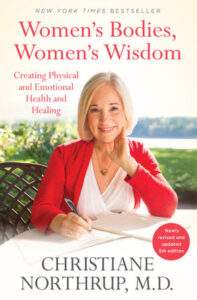
9. Women’s Bodies, Women’s Wisdom
Creating Physical and Emotional Health and Healing
Christiane Northrup, MD • Penguin Random House
This fifth edition of Christiane Northrup’s landmark handbook for women’s health, first published in 1996, has been updated for the #metoo generation. As with Northrup’s four earlier revised editions, this one offers updated treatment and research data, and updated thinking, too, from Northrup’s new stage in life: grandmother.
Northrup is still all about a holistic approach to women’s health, and that includes considering the culture in which women live. Northrup doubles down on her avowal that having internalized our bodies as a problem is at the heart of women’s health, and that sexual trauma and abuse play out in our physical body. She notes that as the tide seems to be turning for sexual assault and harassment, so too must the tide turn for healthcare. This book will be for any woman who missed it the first time around—it’s comprehensively dedicated to women’s health, from the role of the patriarchy in women’s health care to understanding menopause, and includes a 12-step program for flourishing. —SD
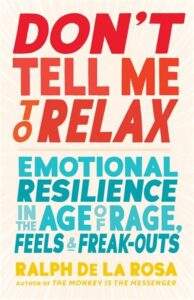
10. Don’t Tell Me to Relax
Emotional Resilience In the Age of Rage, Feels & Freak-Outs
Ralph De La Rosa • Shambhala
Spiritual bypassing, a term first coined in psychology, refers to misusing spirituality or wisdom teachings by zeroing in on their “feel-good” aspects, while minimizing the reality of pain (our own, as well as others’). But is the only alternative to feel paralyzed by raging despair?
Don’t Tell Me to Relax, De La Rosa’s second book, arrives at the perfect time to inform a growing cultural awareness that neither approach will get us very far. “May we never forget: Often the deepest truths are the ones that challenge us,” he writes.
Skillfully drawing on neurobiology, mindfulness teachings, and psychotherapy, De La Rosa acknowledges that suffering is caused by a multitude of factors: from the systemic, like racism, ableism, homophobia, and economic disempowerment, to the personal—dysfunctional upbringings, traumatic losses, physical and mental health struggles. Having faced some of these himself, he doesn’t negate their importance in our lives, nor claim we should just get over them. Instead he empowers us, through direct and insightful prose, to touch in with these parts of ourselves that hurt. The book’s focus is “on radical nonpathology, embedding it in an empowerment model: the truth that the inherent wisdom, clarity, and freedom of our deeper nature need not wait for anyone or anything else to come along.” Throughout, De La Rosa offers seemingly simple yet transformative practices to help us (re) discover our innate curiosity and introspection. When we don’t “relax” but instead deepen into awareness and compassion, we can channel our efforts in the direction of healing—both for ourselves and for our world. —AT
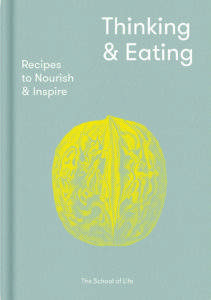
11. Thinking and Eating
Recipes to Nourish and Inspire
The School of Life
A cookbook unlike any other, Thinking and Eating explores “how the sensory realm can be deployed to help with the transmission of ideas.” Food, like art, can inform us about how we should live. In the first section, a list of virtues—each paired with a single ingredient— accompanies delicious-sounding recipes. Hope is a lemon, for instance, maturity a fig. Subsequent sections offer recipes and menus for a variety of moods: when alone (I don’t like myself very much), with friends (Why do we keep talking about house prices?), and in relationships (How can I graciously withdraw from a sulk?). What’s not to love about a book that asserts, “the mushroom is an edible treatise on the oddity of existence”? Seconds for me, please.—SD
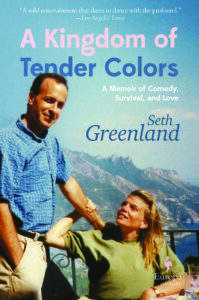
12. A Kingdom of Tender Colours
A Memoir of Comedy, Survival, and Love
Seth Greenland • Europa Editions
Screenwriter, playwright, and novelist Seth Greenland brings his considerable powers as a storyteller to bear on recounting the journey he and his family traveled after his diagnosis of stage 4 lymphoma at 37. With a baby daughter and another child on the way and a writing career in mid-stride, he faced the prospect of losing it all—possibly leaving his new family in dire straits. His in-laws sent him a letter: “We hope you make the most of the time you have left.”
And indeed he has, in the three decades following, as evidenced by the free flow of this narrative, which he was inspired to write during the worst days of his illness, vowing that should he survive he would write the kind of book he wished he could have read while going through the darkest of dark nights. Dark yes, but also funny, since shtick runs thick in his veins. Greenland was a writer and producer on HBO’s Big Love, a satiric treatment of Mormon polygamy, and that irreverence is in full flower here, as he describes grappling with the eternal questions and finding various cosmologies seriously lacking. As he talks to God and asks the divine to please not kill him, he can’t help but share that he’s pretty sure He doesn’t exist, reprimand Him for the inquisition and the holocaust, and throw in a few choice f-bombs to boot.
It’s not all fun and games. We are gripped and moved and intrigued, as he traverses chemotherapy and complications leading to near death; meditation, tai chi, and other mind-body approaches; topped off with far-out alternative treatments that would be inappropriate to mention in polite company. Along the way, his wife Susan takes up meditation to help herself and her kids, leaves her career as a lawyer, becomes the successful author of The Mindful Child, and founds a groundbreaking program of mindfulness for children. Even the darkest clouds hide silver linings. —BB
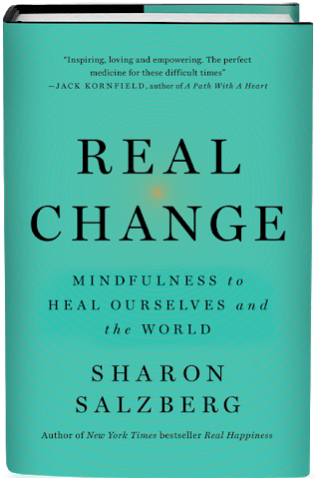
13. Real Change
Mindfulness to Heal Ourselves and the World
Sharon Salzberg • Flatiron
Sharon Salzberg is one of the mindfulness field’s most beloved teachers and prolific authors, with multiple best-selling titles including Real Happiness and Love Your Enemies. In her most recent book, Real Change, Salzberg turns her considerable wisdom toward the now ever-present question of how we can show up and help the world from a place of compassion, without succumbing to rage or burning out.
You could be forgiven for assuming that someone with dozens of years practicing meditation and loving-kindness under her belt is too grounded and heart-centered to get upset about what’s in the news. Salzberg tells us that it does sometimes leave her “burdened, tired out”—adding that it’s completely human to feel overwhelmed sometimes and to want to turn away from it all. Yet, “The truth is,” she tells us, “meditation would not be as meaningful for me at this time in my life if it were just about me.” She describes our built-in tendency toward either fight, flight, or freeze in the face of the powerful emotions. Gently, gradually, we can shift out of these responses, through mindfulness and loving-kindness practices that help us learn “to cultivate a sense of agency, to understand that a range of responses is open to us… to have the space in the midst of adversity to recall our values, what we really care about—and to find support in our inner strength, and in one another,” she says.
Real Change journeys through many richly nuanced topics including how to transform the energy of anger and resentment, instead of getting lost in it; how to work with the bottomless pain of grief and trauma by tapping into our innate resilience; and how we can start to enact a shared vision of the world by making the choice to care and to take action. In the latter part of the book, Salzberg leads us into deeply insightful teachings on interconnectedness, bias, and our habitual, knee-jerk judgments toward both self and “other.” Each chapter ends with a mindfulness practice to help us further integrate our expanded view in each area.
Reading this book feels in some ways like entering a collage of wisdom—and real hope. Salzberg features many voices of courage and care, from feminist author bell hooks to survivors of the Marjorie Stoneman Douglas high school shooting, to researchers and experts in fields too numerous to name, including many from the contemplative sciences. Salzburg also draws connections from Buddhist psychology to augment our current scientific understanding of the mind and how significantly our minds create our world. A profound and timely offering, Real Change will resonate for years as a guidebook for creating heart-centered, mindful change in the midst of so much uncertainty. —AT
read more
The Best Mindfulness Books of 2019
The Mindful Editors look back on their favourite books from this year, covering diverse topics such as mindful communication, racial justice, and simply being.
Read More
4 Books We’re Reading to Replenish Our Energy
From exploring emotional resilience to dabbling in mindful eating, here are four books (and three podcasts) to nourish your body and mind.
Read More
5 Awesome Books for Kids About Mindfulness
A handful of the latest stories you might read with your child to help them learn about emotions, kindness, and mindfulness.
Read More


